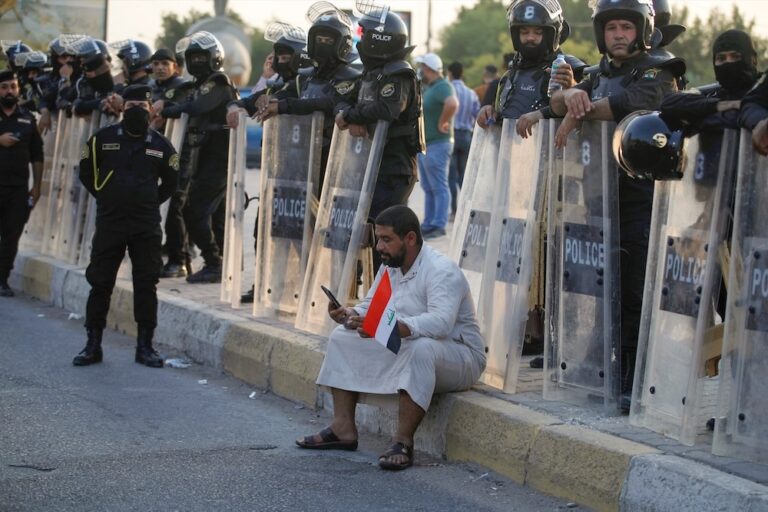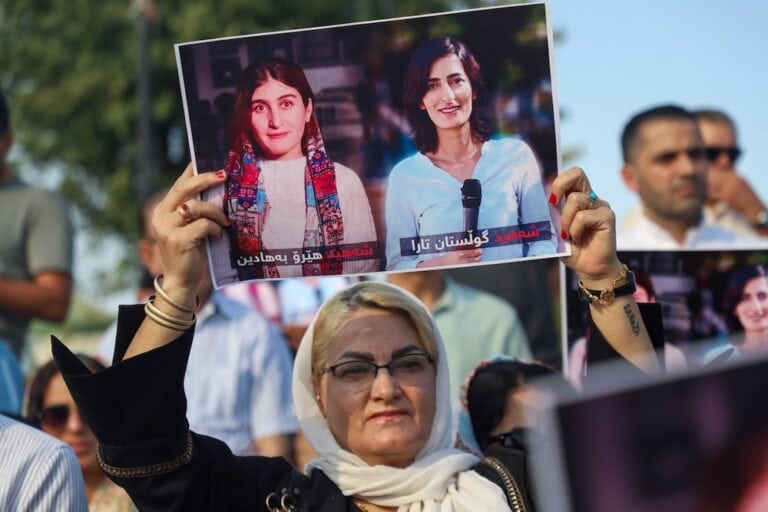(RSF/IFEX) – On 30 October 2004, a car bomb exploded outside the Baghdad offices of the pan-Arab television station Al-Arabiya, leaving seven people dead and at least 19 wounded, including employees of the station. “This attack is further evidence of the contempt that the parties to the conflict display for press freedom, without which there […]
(RSF/IFEX) – On 30 October 2004, a car bomb exploded outside the Baghdad offices of the pan-Arab television station Al-Arabiya, leaving seven people dead and at least 19 wounded, including employees of the station.
“This attack is further evidence of the contempt that the parties to the conflict display for press freedom, without which there will be no democracy or lasting peace in Iraq,” RSF said. The organisation called for a thorough investigation to identify and punish those responsible and to establish whether the television station was the intended target of the attack.
RSF noted that Iraq is the most dangerous place in the world for journalists and news media workers. At least 45 have been killed since the start of the war and two others are missing. French journalists Christian Chesnot and Georges Malbrunot and their driver Mohamed Al-Joundi have been held by the Islamic Army in Iraq for the past 74 days (see IFEX alerts of 21 September, 31, 30, 27, 24 and 23 August 2004).
Al-Arabiya’s Baghdad bureau chief, Haidar Al-Wattar, said five of his employees were missing and could be among those killed. Twelve of the 19 people reported injured were also believed to be Al-Arabiya employees.
The car bomb, which went off in a parking lot outside Al-Arabiya’s offices, caused extensive damage to the building, which also houses the offices of the Arab television stations MBC and Al-Ekhbariyah. Both the Iraqi Interior Ministry and Al-Arabiya said a suicide bomber may have been inside the car that exploded.
By late in the day on 31 October, it was still unclear if Al-Arabiya was the intended target of the car bomb attack. Responsibility for the bombing was claimed by a group called the Thaourat Al-Ichrine Brigades (1920 Revolution Brigades). In a statement, the group said, “The building collapsed on the spies, the Americanised journalists (. . .), mouthpiece of the American occupation.” The statement, whic was posted on a website, could not be authenticated.
Al-Arabiya director Abdulrahman Al-Rashed rejected the allegation of a pro-American bias. On the contrary, the station was a “victim of its neutrality,” he said, pointing out that three of its journalists have been killed by American armed forces’ gunfire. He said the station would not be intimidated and would continue to work in Baghdad.
Al-Arabiya is headquartered in Dubai and is largely financed by Saudi capital.


